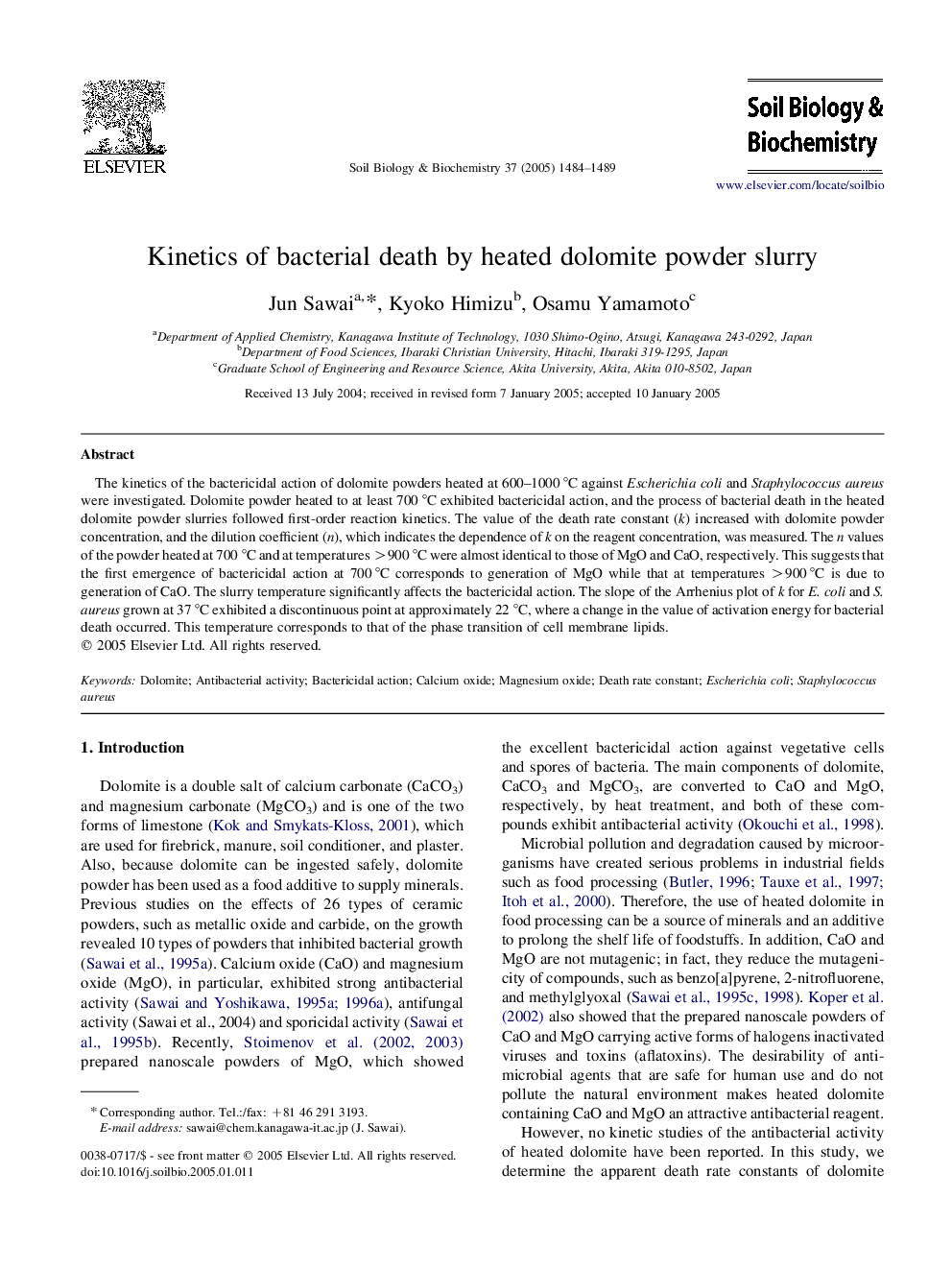| Article ID | Journal | Published Year | Pages | File Type |
|---|---|---|---|---|
| 10846231 | Soil Biology and Biochemistry | 2005 | 6 Pages |
Abstract
The kinetics of the bactericidal action of dolomite powders heated at 600-1000 °C against Escherichia coli and Staphylococcus aureus were investigated. Dolomite powder heated to at least 700 °C exhibited bactericidal action, and the process of bacterial death in the heated dolomite powder slurries followed first-order reaction kinetics. The value of the death rate constant (k) increased with dolomite powder concentration, and the dilution coefficient (n), which indicates the dependence of k on the reagent concentration, was measured. The n values of the powder heated at 700 °C and at temperatures >900 °C were almost identical to those of MgO and CaO, respectively. This suggests that the first emergence of bactericidal action at 700 °C corresponds to generation of MgO while that at temperatures >900 °C is due to generation of CaO. The slurry temperature significantly affects the bactericidal action. The slope of the Arrhenius plot of k for E. coli and S. aureus grown at 37 °C exhibited a discontinuous point at approximately 22 °C, where a change in the value of activation energy for bacterial death occurred. This temperature corresponds to that of the phase transition of cell membrane lipids.
Keywords
Related Topics
Life Sciences
Agricultural and Biological Sciences
Soil Science
Authors
Jun Sawai, Kyoko Himizu, Osamu Yamamoto,
